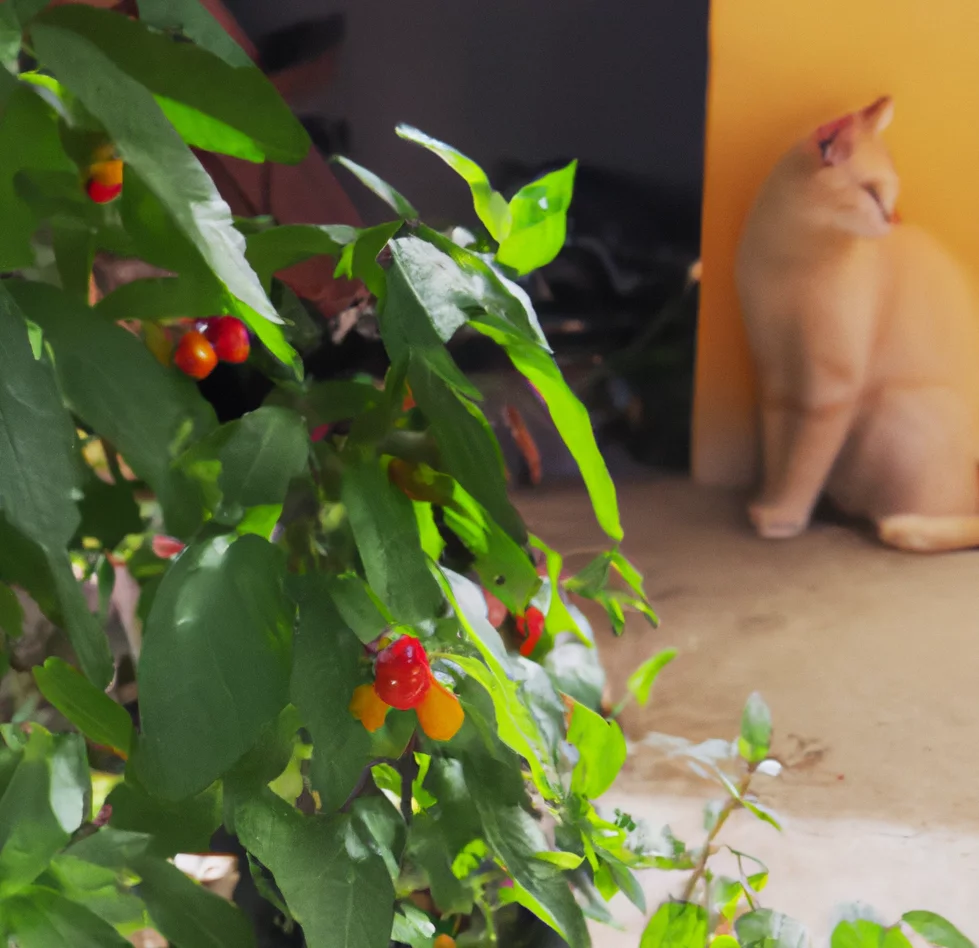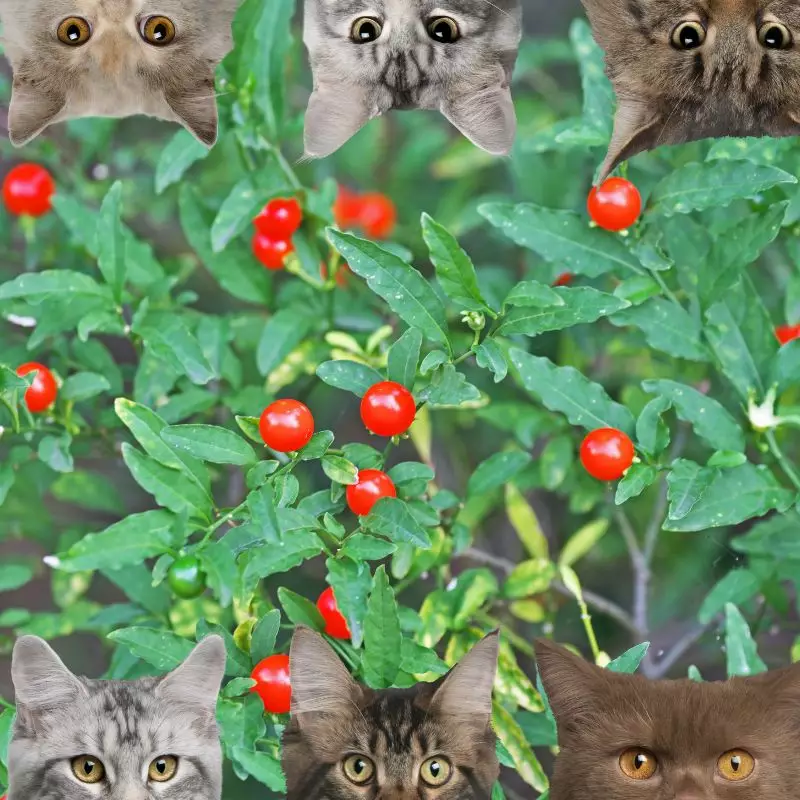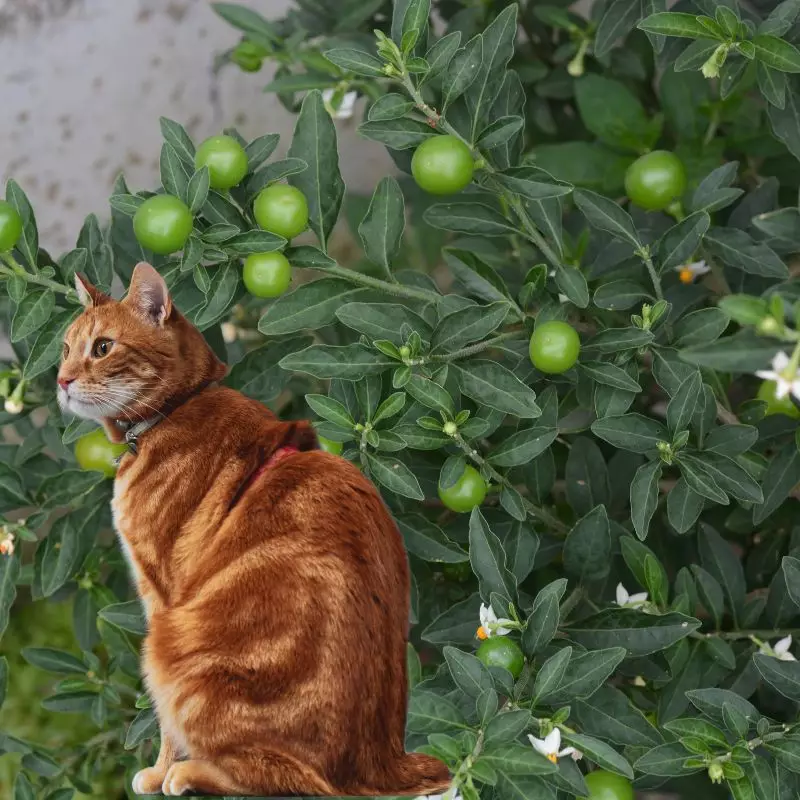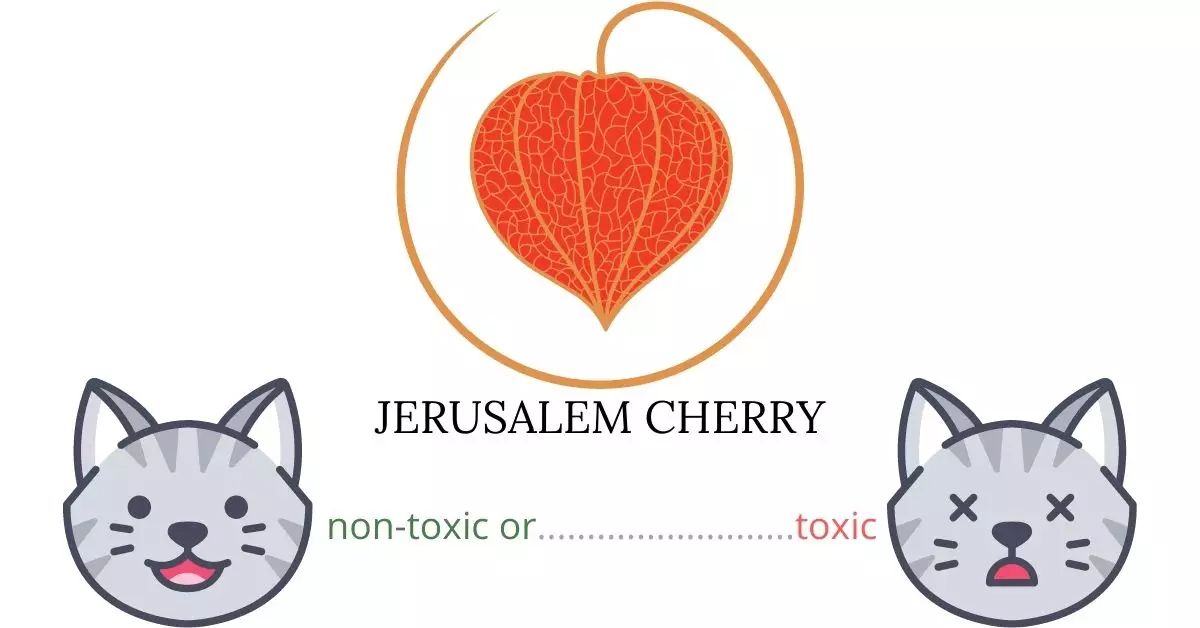Absolutely, the Jerusalem Cherry, also known as the Natal Cherry or Winter Cherry, is toxic to cats. Cat owners must be vigilant as all parts of this plant, especially the berries, contain dangerous chemicals. Key among these is solanocapsine, a molecule related to solanine. Studies on its toxicity indicate that while the potential for lethal effects is there, the risk is mitigated somewhat by the toxin’s low oral absorption.
This article has been crafted in collaboration with a team of experienced DVMs (doctors of veterinary medicine). Their expert insights ensure we present accurate and current data on the potential risks associated with various plants, with a focus on the Jerusalem Cherry in this context. Moreover, to ensure comprehensive and reliable information, we have also consulted high-authority websites such as the ASPCA and PetMD for every plant discussed.
Clinical Signs of Jerusalem Cherry or Winter Cherry Poisoning in Cats

If a cat comes into contact with or ingests parts of the Jerusalem Cherry plant, it can exhibit a variety of clinical symptoms. Each of these symptoms is a direct result of the plant’s toxins interacting with the cat’s body.
- Hypersalivation: This occurs due to the immediate irritative effect of the toxins on the cat’s oral mucosa, making them produce excessive saliva.
- Severe gastrointestinal disturbance and Diarrhea: The toxins irritate the gastrointestinal lining, leading to upset stomach and frequent bowel movements.
- Anorexia: A cat might lose its appetite due to the gastrointestinal discomfort.
- Drowsiness and Depression: These can be attributed to the toxins affecting the cat’s central nervous system.
- Nausea: This is a direct result of gastrointestinal irritation and potential central nervous system involvement.
- Vertigo: The cat might experience dizziness due to the toxin’s effect on the inner ear and balance centers of the brain.
- Dyspnea and Respiratory paralysis: The toxins can depress the respiratory center in the brain or directly affect the lung tissues.
- Anticholinergic syndrome: This is a group of symptoms, like dry mouth and blurred vision, resulting from the suppression of the neurotransmitter acetylcholine.
- Confusion and Hallucinations: These neurologic signs result from the toxins’ interference with normal brain function.
- Hyperpyrexia: The toxins can disrupt the body’s temperature regulation, leading to elevated body temperatures.
- Ataxia: This is characterized by uncoordinated movements due to the toxins’ impact on the cat’s motor function centers in the brain.
- Excitement: The initial reaction to the toxin might cause hyperactivity in some cats before other symptoms set in.
- Coma: In severe cases, the overwhelming amount of toxins can depress the brain’s function to the point of unconsciousness.
- Dry skin: The plant’s toxins can lead to dehydration, resulting in dry and flaky skin.
- Irregular heart rhythm: The toxins can interfere with the heart’s electrical activity, causing arrhythmias.
- Mydriasis or dilation of pupils: The toxins can cause muscle relaxation, including the muscles in the iris, leading to dilated pupils.
Cat owners must be vigilant and seek veterinary assistance immediately if any of these symptoms are observed after suspected contact or ingestion of the Jerusalem Cherry plant.
First Aid and Treatment of Jerusalem Cherry or Winter Cherry Poisoning in Cats

Symptomatic treatment is the most common approach to Jerusalem cherry or winter cherry consumption. It may be required in some circumstances to seek emergency medical help. Intravenous fluid therapy, vomiting induction, and activated charcoal administration are all common treatment methods for plant poisoning. Depending on your cat’s condition, your veterinarian may suggest doing gastric lavage. The veterinarian has the authority to administer drugs as he sees fit.
Recovery from Jerusalem Cherry or Winter Cherry Poisoning in Cats

Death from Jerusalem cherry poisoning is rare, although it does happen. Cats that have eaten winter cherry have an excellent chance of recovering if they are treated quickly. Within one or two days, the symptoms will most likely fade away.
Prevention of Jerusalem Cherry or Winter Cherry Poisoning in Cats
To avoid poisoning threats in your cats, search for other holiday decoration alternatives that are cat-friendly. If your cat likes to go outdoors, train them to stray away from toxic plants or you can also limit their outdoor activities by keeping them engaged while confined in a cat playpen. You can also try building fences and installing safety nets around the vicinity of your home.
If you love plants but have cats at home, check out these lists:





